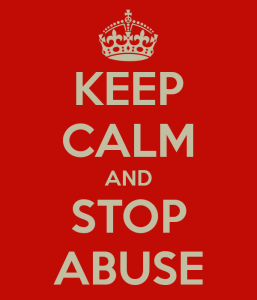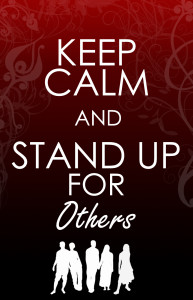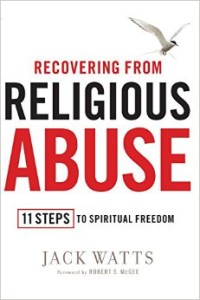 Regular readers of this blog will know that I keep a close eye on the events at Trinity Church Brentwood. The recent news from this church seem to indicate that at last the log jam is clearing. The terms and background of the Commission of Enquiry have been published and promises of dates, publication of the findings etc have been circulated. I have to say that in spite of a few phrases which, on their own, might be read as a pre-emptive attempt to anticipate findings generous to the present leadership, there are also phrases that suggest a steely determination to get to the bottom of all that was horrendously wrong in the past and see how the corruption contaminates and haunts the present. One can see in the document possible evidence of the way that the ‘doves’ and ‘hawks’ have sought to get their perspective into the text. I may be completely imagining this, but I suggest that a lot has been going on behind the scenes. Needless to say, the report, when it appears in the Autumn, will be of prime importance to the understanding of the way that cultic churches operate. Existing reports on dysfunctional churches have tended to focus on areas that constitute illegal and even criminal actions. I am thinking, for example, of a Charity Commission report which investigated a large Black-led church in London. The report said nothing about the life of the church, but focussed entirely on bad book-keeping and failures of financial management. In this particular report, it was revealed that millions of pounds were siphoned off by crooks who were supposed to be investing the money for the benefit of the church.
Regular readers of this blog will know that I keep a close eye on the events at Trinity Church Brentwood. The recent news from this church seem to indicate that at last the log jam is clearing. The terms and background of the Commission of Enquiry have been published and promises of dates, publication of the findings etc have been circulated. I have to say that in spite of a few phrases which, on their own, might be read as a pre-emptive attempt to anticipate findings generous to the present leadership, there are also phrases that suggest a steely determination to get to the bottom of all that was horrendously wrong in the past and see how the corruption contaminates and haunts the present. One can see in the document possible evidence of the way that the ‘doves’ and ‘hawks’ have sought to get their perspective into the text. I may be completely imagining this, but I suggest that a lot has been going on behind the scenes. Needless to say, the report, when it appears in the Autumn, will be of prime importance to the understanding of the way that cultic churches operate. Existing reports on dysfunctional churches have tended to focus on areas that constitute illegal and even criminal actions. I am thinking, for example, of a Charity Commission report which investigated a large Black-led church in London. The report said nothing about the life of the church, but focussed entirely on bad book-keeping and failures of financial management. In this particular report, it was revealed that millions of pounds were siphoned off by crooks who were supposed to be investing the money for the benefit of the church.
In looking at the terms of the Commission I detect a readiness to face the past failures, even if these are not in fact criminal. The Commission has said that it will not, in fact, be addressing issues of a criminal nature, nor those which might potentially involve the claiming of damages. Since many past members were financially exploited, this may seem, on the face of it, a set-back for the cause of justice. The misappropriation of funds, particularly the holding of special collections to buy property which was then put in the name of the leaders, is one area of particular concern to ex-members. However, in contrast to this area of church life, there seems to be some important concessions to the to the issues aired by the other blog. A commission that is prepared to look at issues of culture and theology in a church that led to abuse, is, as far as I know, a first in the history of report writing. This will make my detailed interest in this process understandable.
The first statement by the Church leadership concerning the Commission, is to say that, under Michael Reid, things were taught as biblical which were not. These same false teachings infected the church like yeast infecting dough. This unbiblical teaching caused ‘hurt and grief’. This image of yeast is a powerful one and shows that the Commission does not seem afraid of some strident theological deconstruction of the teachings of MR. This may, we hope, offer some trenchant critique of the theology which undergirded the cultic techniques used by Reid. The fact that he enriched himself in the process has to be acknowledged and it is difficult to see how the financial aspects of MR’s ministry will not be, in part, addressed by the Commission. The money spent by MR on himself and vanity projects which took him all over the world business class, may have vanished, but the theology that sustained this opulent life-style may yet be revealed.
The second statement about the Commission that I have picked up is the following: ‘We hold out a hand of fellowship to all those who have been hurt and assure them ….be reconciled to them in every way and move forward with them and with the whole church as brothers and sisters in Christ, whether they still attend Trinity or not.’ This statement that the church is going to regard its ex-members as possessing the status of ‘brothers and sisters’ is a massive subversion of the cultic structure of the church. Many churches play the projection game on their ex-members as a way of keeping the faithful close to the leadership. In other words, if the leadership can persuade its members that the former members are apostates and renegades, then the sense of solidarity is greatly strengthened. The Commission is setting out firmly that this cultic trick is no longer to be tolerated. The ex-members are brothers and sisters in Christ. Nigel is not to be regarded as the enemy at the gates, but someone to be offered the hand of fellowship.
The dynamic of Trinity will need to change to accommodate this new way of thinking and for many it will be extremely difficult. It is so much easier to believe you are a member of a persecuted misunderstood group than to acknowledge, as seems inevitable, that Michael Reid ran a church which exploited and cheated you. It is even more difficult to recognise that the individual at the gate, in the person of Nigel Davies who ‘prophesised’ week by week, was actually speaking the word of God more accurately than was being said inside the walls of the church. No, either of these two new ‘truths’ will be deeply subversive to the existing membership of the church and it is very hard to see how it will continue in its present form.
One detail who gives me great hope for the Commission is that ‘Gail’, the American Bible Student, whose allegation of rape began this whole process has great faith in the integrity and thoroughness of John Langlois, the chairman of the Commission. I have no hesitation in agreeing with her assessment, having read one of his earlier reports. I have already suggested in a previous blog that the Evangelical Alliance has had its own reputation challenged by its past support of Trinity in the face of challenges and complaints. It would help the EA if the entire structure of Trinity collapsed before being reformed, so that a reputation for toughness and impartiality could be claimed. In the meantime watch this space. You can be sure that the report when it finally appears in the Autumn will be scrutinised extensively by this blog. It may be one of the most important documents on the subject of ‘abusive churches’ ever to have been published.






